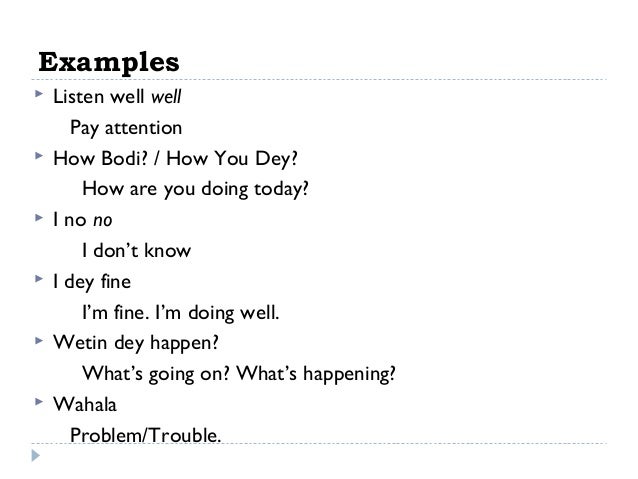
However, it is very possible that this association between pigeons and communication accounts for the origin of the word ‘pidgin’. Pigeon post became less popular as the postal system developed and in today’s world of email and instant messages, messenger pigeons are generally nothing more than a curiosity or hobby. They were used frequently throughout history and extensively in the Franco-Prussian War. Homing pigeons were in fact used as messenger pigeons by ancient civilizations such as the Persians and Romans. However, others claim that the word is related to the English word ‘pigeon’. Since pidgin languages were most frequently used for business related purposes it may indeed be the case that the name evolved this way. Some claim that is evolved in the 19th century from a Chinese word that means ‘business’. The origin of the word ‘pidgin’ is uncertain. Each pidgin language is a language in its own right and speaking a simplified version of English does not qualify the language as Pidgin English. It might sound like all broken or simplified forms of a language are pidgin languages by default but this is actually not the case. Pidgin languages also most often contain gestures, phrases and elements from many different cultures and languages. This means that pidgin languages are often used between two different language communities and though they are sometimes simplified versions of one language, they often contain words from two or more other languages. A pidgin language is most often a second language and is frequently used to facilitate trade and business transactions. Often, the vocabulary of a pidgin language comes from one language while its grammar and syntax come from another. by Peter Stockwell.Pidgin refers to a group of languages that are grammatically simplified versions of other languages that are used in order to more easily enable communication. Trask, Language and Linguistics: The Key Concepts, 2nd ed., ed. The result is a creole, and the children who create it are the first native speakers of the creole." (R.L. This happens when the children in a community have nothing but a pidgin to use with other children, in which case the children take the pidgin and turn it into a real language, by fixing and elaborating the grammar and greatly expanding the vocabulary. Third, and most dramatically, it can be turned into a mother tongue. Second, it can remain in use for generations, or even centuries, as has happened with some west African pidgins.

This has happened to Hawaiian pidgin, now almost entirely displaced by English, the prestige language of Hawaii. First, it may eventually drop out of use. "There are several possible fates for a pidgin.What we know about the history and origins of existing creoles suggests that this may happen at any stage in the development of a pidgin." (Mark Sebba, Contact Languages: Pidgins and Creoles. "A creole comes into being when children are born into a pidgin-speaking environment and acquire the pidgin as a first language.Most pidgins are structurally simple, although if used over many generations, they do evolve, as do all languages (Aitchison, 1983 Sankoff & Laberge, 1973)." (Erika Hoff, Language Development, 5th ed., Wadsworth, 2014) "ore than 100 pidgin languages are currently in use (Romaine, 1988).pidgin languages survive today in territories which formerly belonged to the European colonial nations, and act as lingua francas for example, West African Pidgin English is used extensively between several ethnic groups along the West African coast." (David Crystal, English As a Global Language. In time, most pidgin languages disappear, as the pidgin-speaking community develops, and one of its established languages becomes widely known and takes over the role of the pidgin as the lingua franca, or language of choice of those who do not share a native language." (Grover Hudson, Essential Introductory Linguistics. "At first a pidgin language has no native speakers and is used just for doing business with others with whom one shares the pidgin language and no other.


 0 kommentar(er)
0 kommentar(er)
